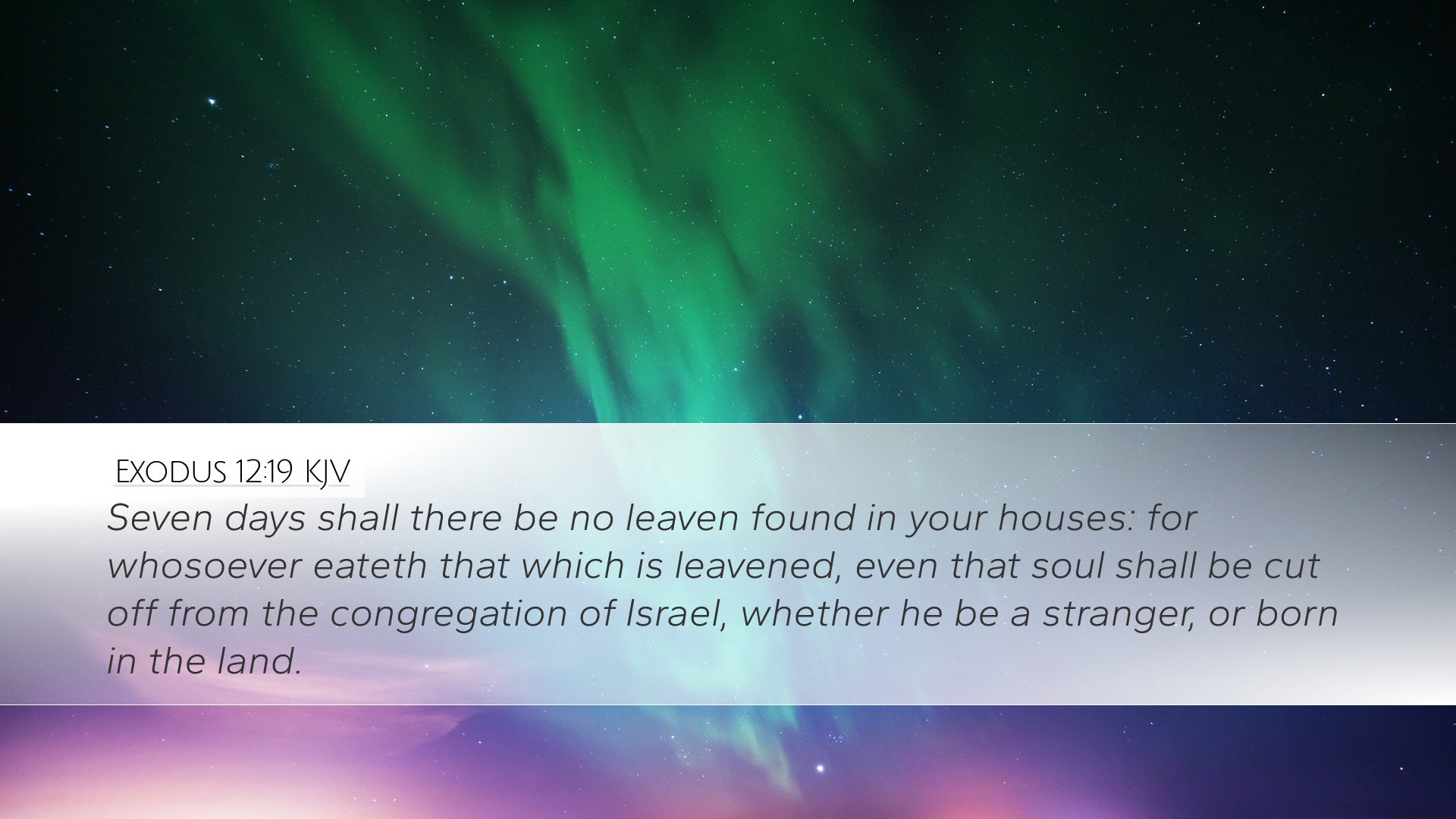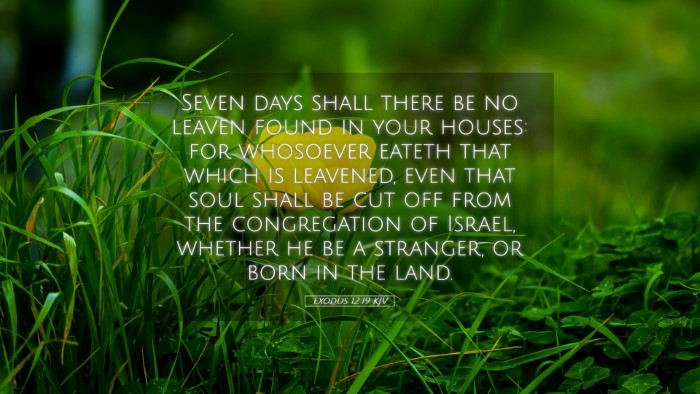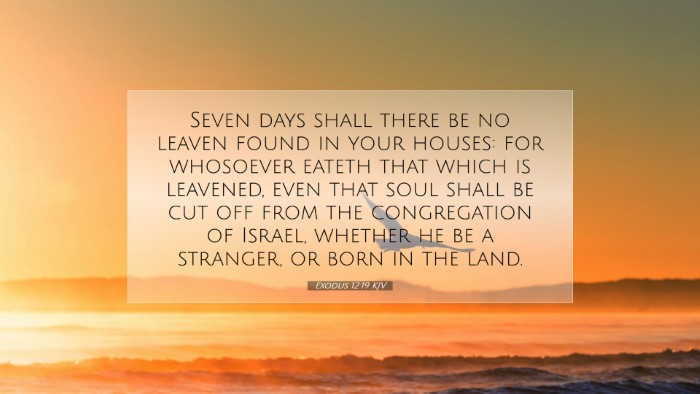Exodus 12:19 - A Comprehensive Commentary
Exodus 12:19 states: "For seven days no leaven shall be found in your houses. For whoever eats what is leavened, that person shall be cut off from the congregation of Israel." This verse is crucial in understanding the significance of the Passover and the broader themes of sin, purification, and communal identity in Israel's journey.
Historical Context
This verse sits within the narrative of the Passover, which marks the Israelites' liberation from Egyptian bondage. The command to remove leaven is not merely a ritualistic act but symbolizes deeper spiritual truths. Leaven, or yeast, is often associated with sin in biblical literature, representing corruption and moral decay.
Public Domain Commentary Insights
-
Matthew Henry's Commentary:
Henry emphasizes that the seven days of unleavened bread serve to remind Israel of their swift departure from Egypt. He asserts that the prohibition of leaven is a representation of the entirety of sin, which Christians are called to avoid. He writes, "As leaven spreads in dough, so will sin in the hearts of men if not checked." This metaphor underlines the importance of maintaining purity within the community.
-
Albert Barnes’ Notes on the Bible:
Barnes points out the communal aspect of the command. The Hebrew society was tightly knit, and individual actions could have repercussions on the community. Eating leavened bread during the festival was an act that indicated rebellion against God's decree. As Barnes states, "To eat leavened bread would be to break the covenant that marked the Israelites as a distinct people." This emphasizes the correlation between personal obedience and communal integrity.
-
Adam Clarke's Commentary:
Clarke brings attention to the practical implications of the command. He elaborates that leaven is often regarded as harmful, leading to sourness in physical bread; therefore, its removal symbolizes the expulsion of anything that could hinder spiritual nourishment. Clarke urges the readers to consider their own lives, questioning what forms of 'leaven' might be present that would disrupt their relationship with God and community.
Theological Implications
The removal of leaven extends beyond a ritualistic observance. It invites reflection on the holistic nature of holiness in every aspect of life. The New Testament echoes such ideals, drawing parallels between leaven and sin.
New Testament References
-
1 Corinthians 5:6-8:
Paul admonishes the church in Corinth, saying, "Do you not know that a little leaven leavens the whole lump?" This indicates that unchecked sin within a community can permeate and corrupt the entire body. Paul's instruction to celebrate the feast of unleavened bread highlights the continuity of this symbolism, inviting believers to embrace purity and sincerity.
-
Matthew 16:6:
Jesus' warning about "the leaven of the Pharisees" reinforces this theme, whereby leaven metaphorically points to false doctrine and hypocrisy. The Israelites’ literal removal of leaven prefigures a deeper spiritual truth aimed at keeping the community free from such deceptive influences.
Practical Application for Believers
For contemporary readers, Exodus 12:19 poses significant challenges and calls for introspection:
-
Examine Personal Habits:
In light of this command, believers are invited to evaluate their spiritual lives. What 'leaven' exists in their practices that could lead to moral decay? This could encompass harmful relationships, unconfessed sins, or complacency in faith.
-
Community Impact:
The interconnectedness of the Israelite community underlines the necessity for believers to care about each other's spiritual well-being. Disobedience can have unintended consequences for the community, thereby encouraging collective responsibility.
-
Embrace a Lifestyle of Purity:
The call to remove leaven represents an ongoing commitment to holiness. It implores believers to seek purification through Christ's sacrifice, reminding them of the importance of living a life reflective of their covenant relationship with God.
Conclusion
In examining Exodus 12:19, it is clear that the removal of leaven holds profound significance in shaping Israel's identity as a holy people. Insights from public domain commentaries enrich our understanding of this verse, guiding pastors, students, and scholars alike in their exploration of sin, community, and holiness. The enduring message resonates through the ages, urging believers to remain vigilant against moral decay and to cultivate a community reflective of God's glory.


